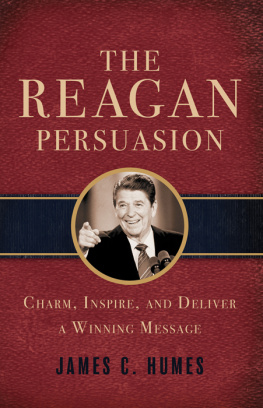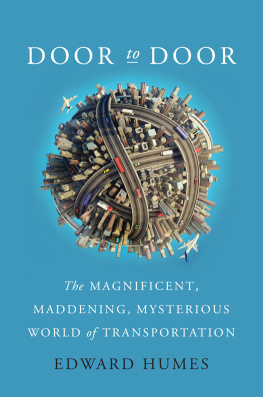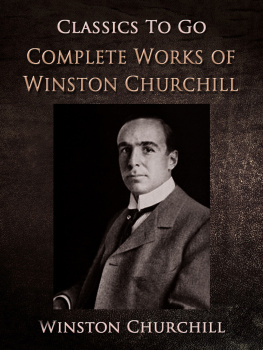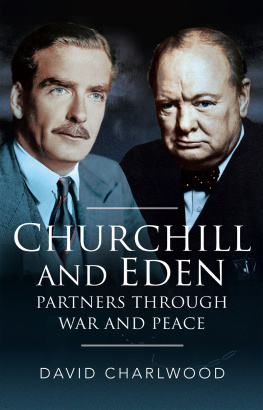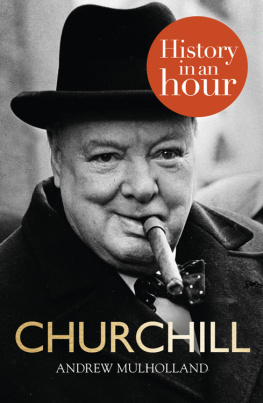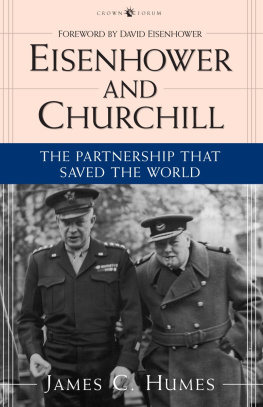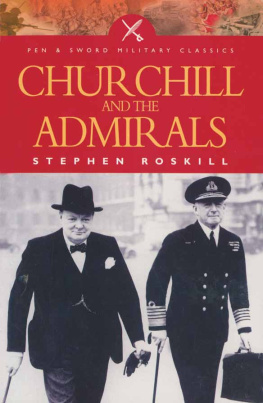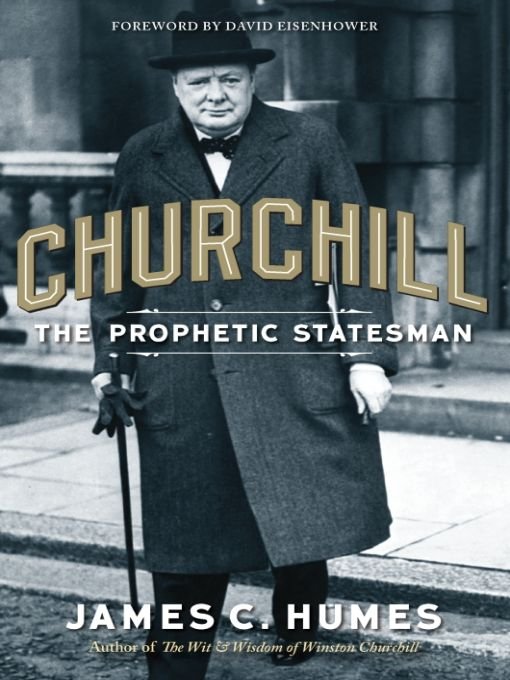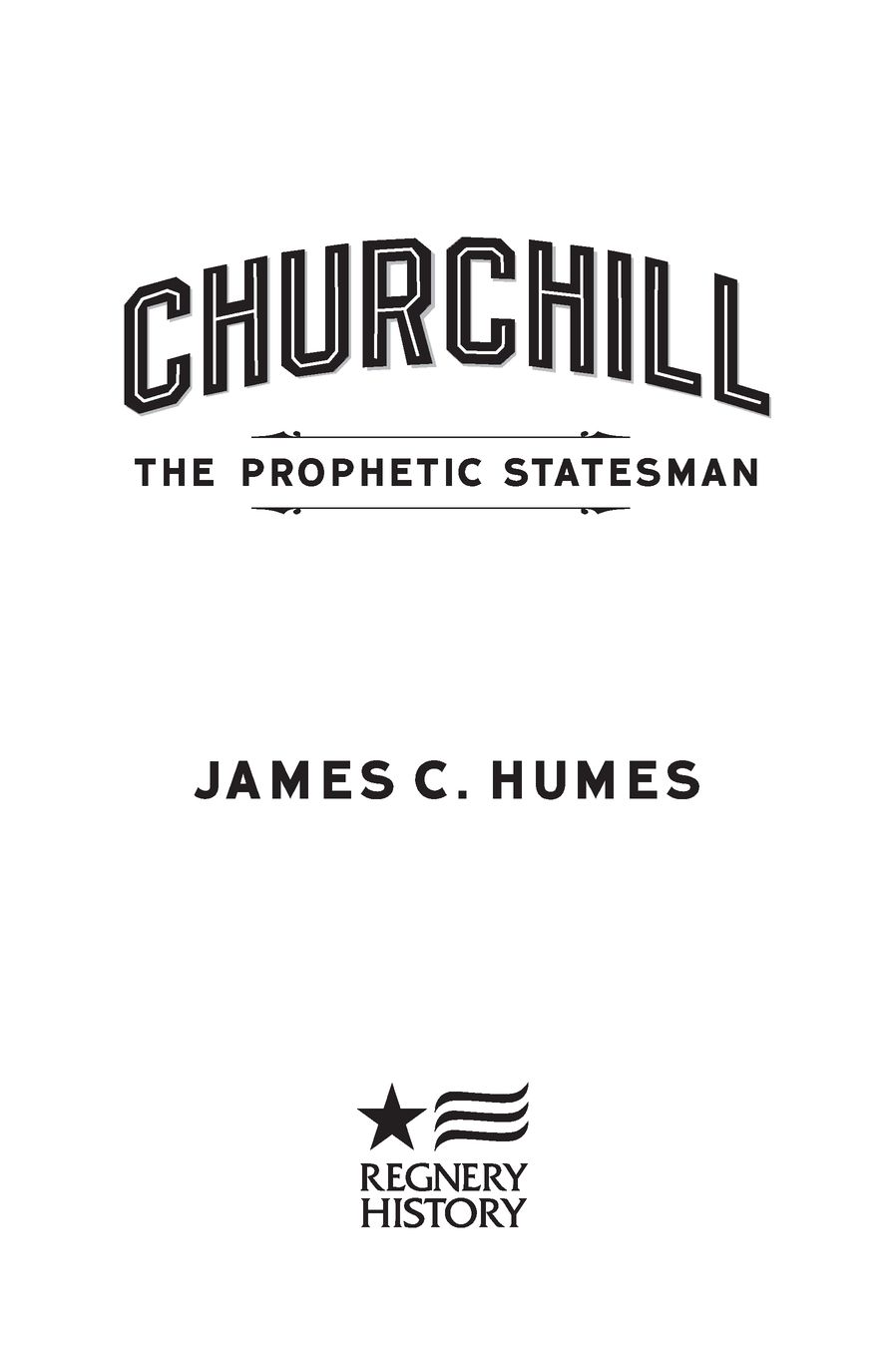Table of Contents
To my daughter, Mary Humes Quillen, without whose encouragement and urging this book would never have been written.
FOREWORD
BY DAVID EISENHOWER
Perhaps it is a clich that a politician thinks of the next election and a statesman of the next generation, yet my grandfather found merit in the maxim. He had known leaders he esteemed as the greatest of statesmen: President de Gaulle, General George Marshall, Chancellor Konrad Adenauer. He also was well acquainted with the decision-making of Presidents Roosevelt and Truman. Churchill, however, was the leader he admired above all. My grandfather once said Churchill would tell his countrymen not what they wanted to hear, but what they should hear. Winston Churchill had the mind of an historian and the courage of a soldier; he would say what he thought even if he risked political death or defeat. And he had the uncanny ability to look well into the future.
In the 1930s the British people, still reeling from the massive death count and trauma of World War I, closed their ears to Churchills warnings about the Nazis and the threat of another war. A decade later, just after World War II ended, the British could not accept the idea that their former ally, the Soviet Union, posed another threat to world peace. Then, in the 1950s, Churchill enraged Europeanswho had suffered country-destroying devastation at the hands of Hitlers Nazisby insisting that Germany must be welcomed back into Europes fold if the continent was to recover economically. He was jeered and attacked for this courageous and far-sighted view.
James Humess fascinating book begins with Churchills schoolboy essay at Harrow in which he predicts a world war beginning in 1914 marked by trench warfare and astronomical casualties. Churchills last admonition came in an address to the American Bar Association, meeting in London in 1957, following the Soviet invasion of Hungary. He warned that the United Nations was becoming a feckless organization dominated by dictators. The free nations, in other words, would have to look within themselves to find the wisdom and resolve to navigate freedoms future challenges.
One of Churchills most striking predictions dates from 1922 and is hauntingly relevant to the world we live in todaythe probability that a fanatical Islamic sect like al Qaeda would create violence and havoc in the West.
Humes also includes in his catalogue Churchills one notable prophetic stumble. He failed to anticipate the relatively speedy success of Overlord, the Allied landings at Normandy, and how long it would take Eisenhowers forces to reach Paris. Maybe Churchills crystal ball was not as accurate in the short term as it was in the long term. Or maybe it became slightly cloudy when contemplating the outcome of a military campaign on which the hopes of all humanity depended, a campaign that Churchill had had the foresight to insist upon and to bring about.
In hundreds of studies of Churchill, no one else, remarkably enough, has focused on Churchills predictions and prophecies. James Humes has produced a book that is unique as well as necessary for an understanding of statesmanship. After all, as Lincoln said in 1858, If we could first know where we are, and whither we are tending, we could better judge what to do, and how to do it.
For anyone who wants to know how a statesmans mind works, I commend this book and the subject of Churchill.
INTRODUCTION
CHURCHILL AS PROPHET
Theres only one political leader in history who had his own crystal ball.
RICHARD NIXON ON CHURCHILL, TO THE AUTHOR IN 1992
Winston Churchill is rightly celebrated as the greatest statesman of the twentieth century and among the greatest of any century. His oratory rallied the British nation in its darkest hour against fearsome odds. His grim yet inspiring acknowledgment when he became prime minister that he had nothing to offer but blood, toil, tears, and sweat, his vow that Britain shall fight on the beaches, and his praise of the RAF pilots in the Battle of BritainNever in the field of human conflict was so much owed by so many to so fewwill be recalled as long as men contemplate the peaks of human eloquence.
One of the most revealing examples of his combination of prophetic vision, resoluteness, and soul-stirring oratory occurred out of the public eye at a crucial moment early in the Second World War. Though scarcely anyone realized it, Churchills premiership, and with it the entire fight against Hitler, almost ended three weeks after he took office in May 1940. While Churchill was desperately trying to rally the nation and coordinate the evacuation of the trapped British Expeditionary Force from Dunkirk, a few of his governments senior members, still in the demoralizing grip of appeasement, were trying to open a back channel to Hitler to seek peace terms. Italy, not yet a belligerent, was willing to act as an intermediary. The foreign minister, Lord Halifax, was pressing hard for negotiations, and was winning some support in the small war cabinet. Churchill risked isolating himself in the fragile new government. He knew that if he sought peace terms the government, at the very least, would fall, and the consequences might indeed be much more dire. In a meeting of the war cabinet on May 28, Churchills eighteenth day in office, he argued that nations which went down fighting rose again, but those which surrendered tamely were finished. Halifax would not yield, however, and the argument between the two grew heated. Churchill moved to adjourn the war cabinet so that he could discuss the matter with the full cabinet.
There now occurred one of the most extraordinary scenes of the war, Sir Martin Gilbert wrote in his official biography of Churchill. The prime minister summoned his full dramatic powers and gave one of the most forceful speeches of his lifeto an audience of only forty people around the long cabinet table in 10 Downing Street. Churchill described the gloomy scene in France, anticipating that Hitler would take Paris and offer terms to Britain. There was no doubt, though, that we must decline and fight on.
Hugh Dalton, the minister for economic warfare, recorded the scene in his diary:
And then he said, I have thought carefully in these last days whether it was part of my duty to consider entering into negotiations with That Man. But it was idle to think that, if we tried to make peace now, we should get better terms than if we fought it out. The Germans would demand our fleetthat would be called disarmamentour naval bases, and much else. We should become a slave state, though a British Government which would be Hitlers puppet would be set up....
And I am convinced, he concluded, that every man of you would rise up and tear me down from my place if I were for one moment to contemplate parley or surrender. If this long island story of ours is to end at last, let it end only when each one of us lies choking in his own blood upon the ground. [Emphasis added.]
Not much more was said, Daltons diary entry continues. No one expressed even the faintest flicker of dissent. Halifaxs last spasm of appeasement was dead, never to return.
Daltons dramatic account did not surface until many years after the war. Churchill deliberately concealed this entire episode, including the climax of May 28, in his World War II memoirs out of tactful consideration for Halifax and others. He merely recorded that he gave a status report on the deteriorating conditions and insisted that, whatever happened, we shall fight on. No mention of calling upon his colleagues to choke in their own blood, or of the bitter struggle with the last vestiges of appeasement inside his own war cabinet during the previous few days.



